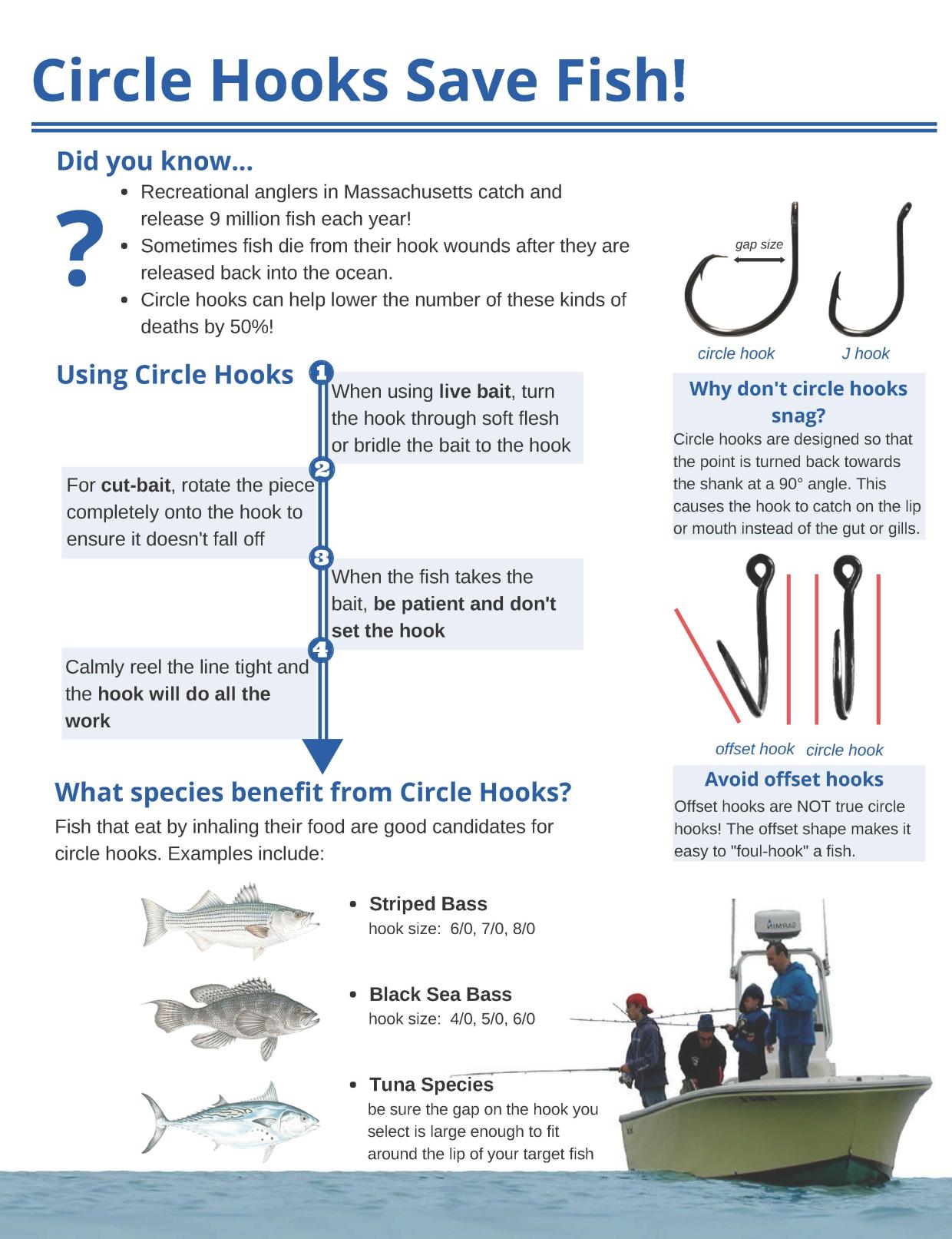Most of the time, we only think about the fish we bring home from our fishing trips. But doing the wrong thing when you catch, handle, and release a fish can cause unintentional injuries or even death. A little knowledge goes a long way in protecting our resources. Below are some ways to be a responsible angler and reduce the number of unintentionally harmed and killed fish.
Practice proper handling
- Fish are covered in a later of mucus, which helps protect them. It's important to main this mucous layer by
- Using a dehooker to release the fish.
- Keeping the fish in the water so it can breathe and maintain its mucous layer.
- If you have to remove a fish from the water, wet your hands or use a wet rag to protect the mucus.
- Never hold a fish by the eyes or gills. Hold it under the belly and the caudal peduncle (where the body meets the tail or caudal fin) for more support.
Additional Resources
-
Open PDF file, 223.89 KB, Recreational Angling techniques (English, PDF 223.89 KB)
Practicing proper release
- If fishing with a j-hook, pay attention and set the hook immediately.
- If the hook is swallowed, never forcefully remove it. Cut the line as close to the mouth as possible and then release.
- Return fish head-first to get it breathing as it enters the water
Understand limiting your bag vs. bagging your limit
- Eat or release. There is no reason to keep any fish you're not going to eat. Pictures and fiberglass trophies look better and last longer than a stuffed fish.
- Catching the bag limit every time you fish is wasteful, even if you plan to freeze it. Freezer-burned fish does not table well.
- If a fish has no limit, it doesn’t mean you should catch as many as you can. Some species with no limit may not taste good.
Circle Hooks
Don't hurt the ecosystem
- You may think marine flora, like eelgrass, are a nuisance, but the fish you like love them and need this habitat. Leave them alone.
- Fishing line should never be thrown into the water or the trash.
- Don’t throw anything in the water. Properly discard unused bait, tackle, or any other trash.
Additional Resources
-
Open PDF file, 223.89 KB, Recreational Angler Techniques (English, PDF 223.89 KB)
-
Open PDF file, 177.04 KB, Responsible Angler Brochure (English, PDF 177.04 KB)
-
Open PDF file, 804.63 KB, Circle Hooks Brochure (English, PDF 804.63 KB)
